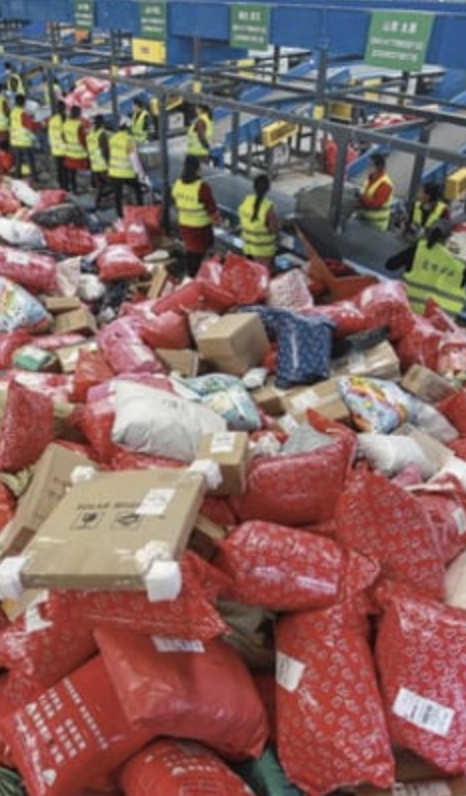
Worse than Cocaine
The Impact of Alibaba’s Mega-Hub in Liege, Belgium
Research paper, February 2023
Many countries tried to position themselves as China’s gateway to Europe. This was also the case of Belgium, when it tried to convince Alibaba to turn the Airport of Liege into its main European hub. Belgium’s overture towards Alibaba is a case of short-sighted and ill-judged policy. It insisted that Alibaba’s presence would boost exports of small companies to China, while Chinese policy expected Alibaba to circumvent European companies and to export more directly to its consumers. Four years after its arrival in Liege, Belgian exports via Alibaba have remained minimal, while customs services are unable to control the tsunami of Chinese packages. (read)
See media coverage in: Financial Times, The Guardian, Financieele Dagblad, ORF, Les Echos, La Dernière Heure, l’Avenir, De Morgen, Gazet van Antwerpen, Het Belang van Limburg, Het Laatste Nieuws, La Libre de Belgique, L’Echo, Libre Eco, Metro, RTL, De Tijd, Trends, La Libre, Reuters, VTM Nieuws, documentary by the RTBF, etc.
Policy debate: questions about the report in the plenary assembly, the commission for consumer protection, the commission of justice of the federal House of Representatives, in the commission for external relations of the Flemish parliament, in the plenary assembly of the Parliament of Wallonia, initiatives in different committees of the European Parliament.
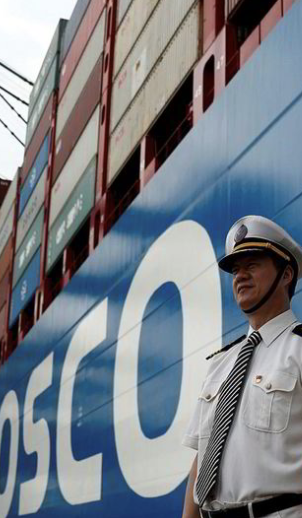
Every Ship a Warship
The Security Role of China’s Maritime Sector and its Consequences for Europe
Research paper, September 2022
There is a growing politization and militarization of China’s civilian maritime sector. China considers maritime power as an important building block of its national power and crucial for its national economic security. In recent years, the Communist Party has strengthened its grip on all large maritime companies. China is also developing its civilian maritime assets with an eye of being deployed in armed conflicts. European companies and centres have continued to engage in cooperation with Chinese counterparts that are engaged in dual-use and military maritime research projects. Despite growing awareness the EU has not yet started to come to grips with this. (read)
See media coverage in The Australian, Belga, De Tijd, Gazet van Antwerpen, Formiche, Iltalehti, News in Germany, Laatste Nieuws, La Republica, Le Soir, Politico, South China Morning Post, The Times, VRT , Wirtschaftswoche, El Confidencial (Spain), Die Zeit, etc.
Policy debate: parliamentary question to the Minister-President, parliamentary question to the Minister-President, internal presentation for the government of Germany, internal presentation for the European Commission, comments by the Belgian foreign minister, a debate in the Transport Committee in the European Parliament, leading to a request to the Commission to better oversee Chinese activities in ports.
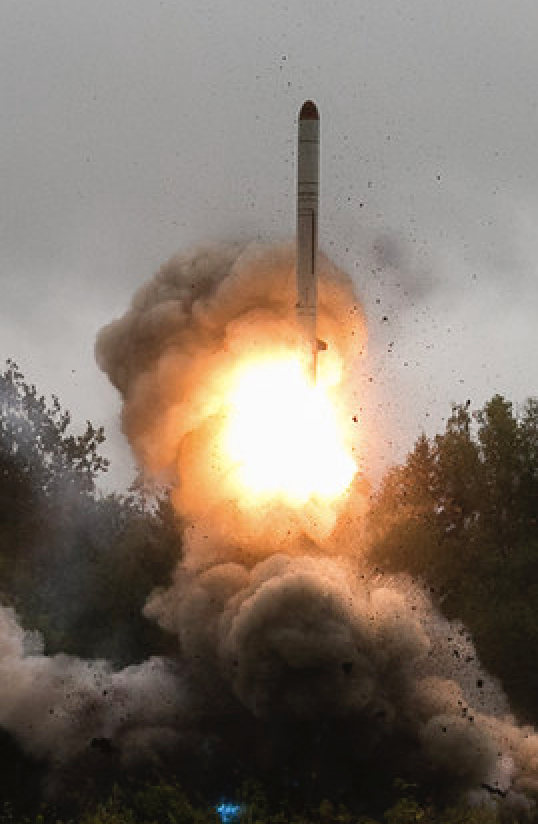
Conventional Guided Missiles in Russian and Chinese Active Defence
Policy input, March 2021
This paper reviews a broad range of Chinese and Russian sources. It finds that conventional guided missiles remain a corner stone in their active defence. They are deemed indispensable to target critical infrastructure, damage command and control systems, and also to demoralize adversaries Both countries highlight the combination of saturation and precision, of dispersing missile systems and multi-dimension strike. The growing and modernizing inventories of guided missiles are considered a precious tool for broadening deterrence and increasing escalation options (read).
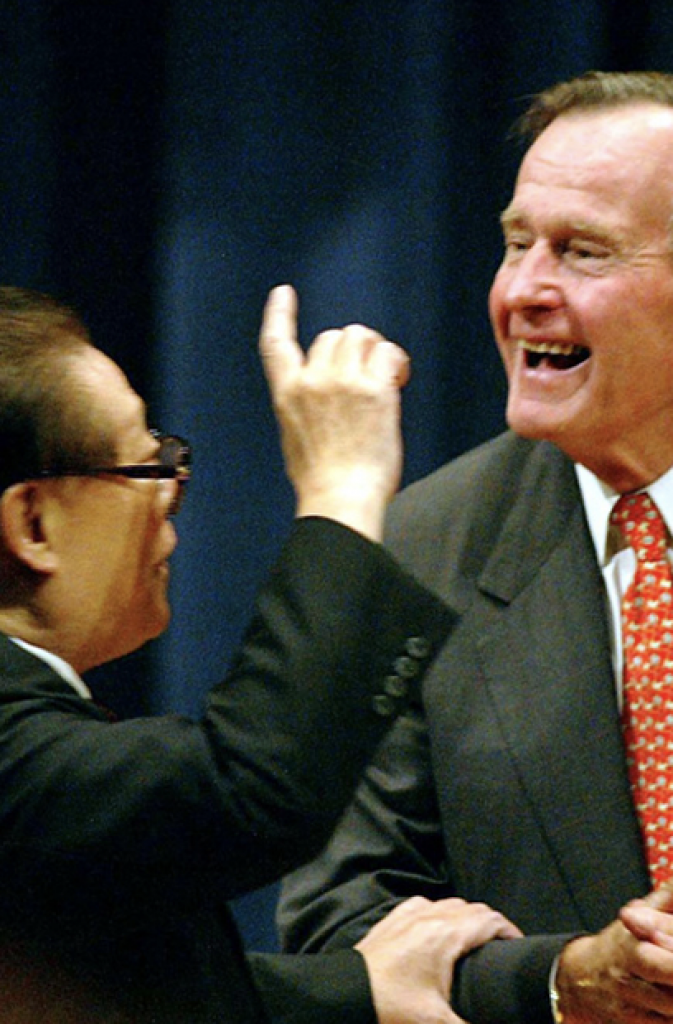
Self-Betrayal: How the West Failed to Respond to China’s Rise
Published in International Spectator, April 2021
From the 1980s, it was clear that a rising China would challenge the interests and core values of the US and the EU. Cables and intelligence reports that were recently disclosed reveal numerous warnings about a pushback. The Western political leadership brushed them aside. While paying lip service to constructive engagement, it was business first. The downside of it was clear but it took several years for the Western political leadership to recognise it and shift to balancing. Early balancing efforts, though, again seem inconsistent (read the draft version) (read the published version).
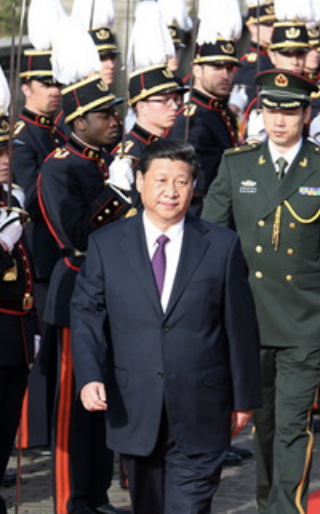
Balancing China's rise: Why small states matter.
Published by the Royal Higher Institute of Defence, January 2021
Of all the rising powers in the last centuries, China holds the largest potential for gaining dominance over Eurasia. Even if we skate around the discussion about its intentions, the question about whether we can rely on the official Chinese vow not to work towards hegemony, it is imperative to preserve a balance of power. Small contributions matter in that regard. Balancing China, needs to be conducted in a measured way. The focus is not on countering China, but bolstering our resilience at home. Balancing China also needs to happen in a way that permits European countries to prioritize security in their neighbourhood (read the entire publication).
Grandstanding: The United States and Asia. Asian Affairs, 60, 1, 2020, pp. 8-20: The Trump administration’s policy on Asia in 2019 displayed a mix of overreach and fecklessness. In terms of economic, strategic, and cooperative relations, the US floundered, stumbled, and fell short, particularly in its efforts to deal with China and North Korea. Overall, observers saw more grandstanding than anything else. (Journal website)
China, NATO, and the Pitfall of Empty Engagement. The Washington Quarterly, 42, 3, 2019: NATO Engaging China without a strategy can make the situation worse. The North Atlantic community needs to avoid economic dependency on strategic challengers in order to reestablish the strength of its economy, restore social cohesion, grow its power overall, and ready itself for a turbulent period of adjustment. (Journal website)
Will India Become China’s Africa. In: The SAGE Handbook of Asian Foreign Policy. London: SAGE, 2019, pp. 1062-1075.
Can India Balance China in Asia? In: Asle Toje, ed. Will China’s Rise Be Peaceful? Security, Stability, and Legitimacy. Oxford: Oxford University Press, 2018, p. 392-413.
How China’s New Silk Road Threatens European Trade. International Spectator, 52, 1, 2017: For all the promises of mutually beneficial cooperation, Chinese policy documents about the New Silk Road testify to a strong ambition to unlock foreign markets. This confirms a shift from defensive mercantilism, which aims to protect the home market, to offensive mercantilism, which seeks to gain market shares abroad. (Journal website).
The Elusive Axis: Assessing the EU–China Strategic Partnership. Journal of Common Market Studies, 49, 2, 2011: This article finds that both sides fail to identify common interests, that joint priorities continue to be concentrated in the business sector, and that China and Europe have not been able to determine what the relevance of their relationship is compared to other powers.
Geoeconomics in a globalized world: the case of China’s export policy. Asia Europe Journal. 10, 2, 2016: The world is expecting China to rebalance its growth from investment and export to more domestic consumption. Yet, this paper finds that the new leadership does not have concrete plans to do so. Moreover, a review of important policy documents reveals that it is set to make another major push for industrialization through export. More sophisticated export promotion policies are put in place.
Hedging the hard way: Russia’s response to world disorder. Global Affairs. 20, 2, 2016: This paper posits that Russia’s role during the Ukrainian Crisis presaged a strategy of hard hedging. Confronted with the apparent threat of growing influence of the West and growing influence of China, Russia has responded with a policy of hard hedging that is characterized by an emphasis on military power, sovereignty and autonomy. The paper comes to that conclusion by reconstructing shifts and continuity in Russia’s behaviour between 2014 and 2015, considering a wide range of economic, political, and military indicators.
To be completed